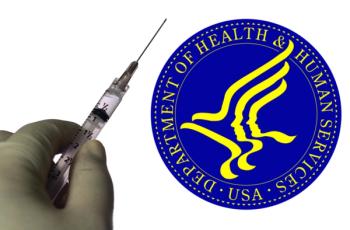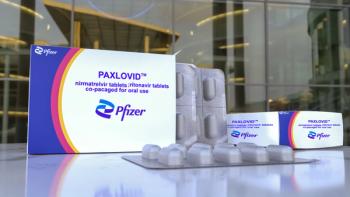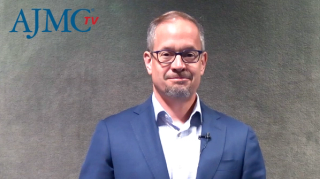
Health Care Delivery
Latest News

Latest Videos

Podcasts
CME Content
More News

Researchers found a 30% increased risk of cardiovascular events in patients whose diagnosis was delayed by more than a year after an elevated blood pressure reading.

Many FDA accelerated approvals continue to rely heavily on surrogate endpoints, raising ongoing uncertainty about the true clinical benefits of these therapies.

The Trump administration's policies reshape global health dynamics, presenting Europe with both challenges and opportunities for leadership in health governance.

New research reveals critical gaps in treatment for advanced non–small cell lung cancer (NSCLC), emphasizing the need for innovative therapies to improve patient outcomes.

Significant demographic differences were found when evaluating the use of depression services in people living with HIV and depression.

High-Risk Care Management Impact on Medicaid ACO Utilization and Spending
In Massachusetts’ largest Medicaid accountable care organization (ACO), high-risk care management significantly reduced spending, emergency department visits, and hospitalizations, demonstrating that targeted strategies can manage health care costs amid budget constraints.

Many patients value conversations with their rheumatologists and oncologists more than just reading information from a website.

Mirima Freimer, MD, delves into potential reasons behind the longer-term efficacy of zilucoplan and also speaks to the treatment’s safety profile.

Countries in sub-Saharan Africa could see thousands of deaths from HIV due to cuts to the US President’s Emergency Plan for AIDS Relief (PEPFAR), underscoring the necessity of reinstating the program.

The plaintiffs are seeking preliminary and permanent injunctions against recent COVID-19 vaccine policy changes and a declaratory judgment that the HHS secretary’s actions were unlawful.

Encounter-level factors played a key role in limiting outpatient COVID-19 treatment for Black and Latino patients.

Explore how health equity initiatives aim to improve health care access and reduce disparities in mental health and opioid treatment.

Avoiding downstream testing ultimately makes it cheaper for whoever is footing the bill, says Merrill H. Stewart, MD, Ochsner Health.

Collaborations between academic and community cancer centers enhance access to care, with success in acute myeloid leukemia and precision oncology.

Black men who were identified as sexual minorities were more receptive to long-acting injectable pre-exposure prophylaxis (PrEP) vs on-demand PrEP.

This approval comes almost a year after the drug received a complete response letter due to third-party manufacturing issues.

There are significant racial disparities in outpatient referrals for opioid use disorder treatment, highlighting urgent need for targeted interventions in emergency care, according to a recent study.

Explore how the Collaborative Care Model enhances mental health access in this episode featuring Anna Bobb, MPH, executive director of the Path Forward coalition.

Researchers said longitudinal studies are critical to refine and optimize the management of metabolic dysfunction–associated steatotic liver disease (MASLD).

Rachel Rohaidy, MD, of Miami Neuroscience Institute and Baptist Health, discusses how the evolving treatment landscape is reducing stigma around relapse and why ongoing recovery requires daily commitment.

Financial, family, and logistical challenges often lead patients to choose ongoing therapies over stem cell transplantation, says Mansi Shah, MD.

From the impact of rising grocery prices to disparities in myeloma outcomes, check out news from the Center on Health Equity & Access this past week.

Artificial intelligence (AI)–based electrocardiogram interpretation (AI-ECG) detected left ventricular systolic dysfunction (LVSD) in patients with muscular dystrophy, a recent study found.

Researchers called for standardized health outcome descriptors to help bridge communication gaps in rheumatology care and improve shared decision-making.

Vizient's 2024 survey reveals a sharp rise in drug shortages across US health care, with pediatric care hit especially hard and labor costs soaring—but the true impact may go far beyond limited medication access, threatening to disrupt the very foundations of how health systems operate.






















